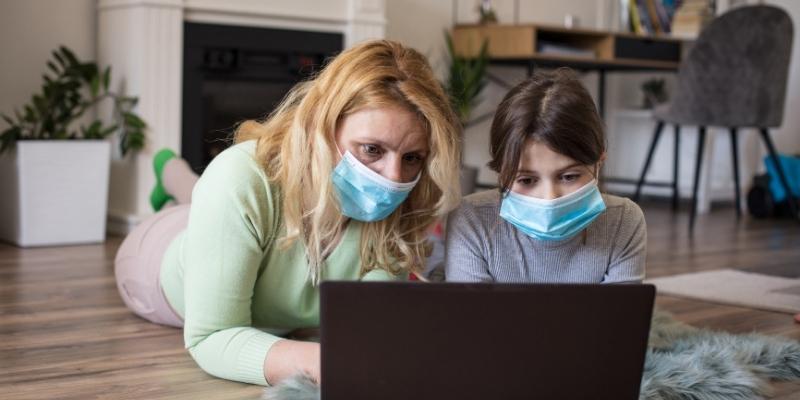Monkeypox: Symptoms and Severity Unveiled
Oct 18, 2023 By Madison Evans
Due to its seriousness, monkeypox, an uncommon viral disease, has drawn attention. This animal-derived zoonotic virus mainly infects humans in areas where it has been found. Public health awareness and readiness need to understand monkeypox's severity and symptoms.
Like smallpox, monkeypox is a poxvirus infection with moderate to severe symptoms. Early diagnosis and therapy need symptom recognition. Healthcare practitioners and the public must understand monkeypox symptoms and outcomes since it may cause serious consequences.

Monkeypox: A Zoonotic Virus
Rodents spread zoonotic monkeypox. Animals sometimes spread the virus to people in Central and West Africa, where it is prevalent. Monkeypox is zoonotic; thus, monitoring and managing it at its source is crucial.
Before human instances were reported in the 1970s, monkeypox remained unknown. Sporadic epidemics have occurred in many African nations since then. Enigmatic origins and transmission patterns draw academics and epidemiologists to the virus's propagation and effect.
Monkeypox epidemics have occurred in Nigeria, DRC, and Cameroon. Recognizing the virus's geographic dispersion helps identify high-risk locations and undertake public health measures to control it.
Symptoms of Monkeypox:
Clinical manifestations of monkeypox vary widely due to its wide range of symptoms. Early symptoms include fever, headache, muscular pains, and tiredness, similar to a viral disease. Disease-specific skin lesions emerge several days following symptoms. Raised papules might become pustules and scab over.
The diversity of monkeypox symptoms makes diagnosis difficult. A minor sickness with limited skin involvement may occur, whereas a severe variety with extensive skin lesions and systemic symptoms may occur. Healthcare practitioners must understand symptoms and their evolution to diagnose and treat patients.
Some monkeypox patients have extensive skin involvement, while others have pneumonia or encephalopathy. Disease severity must be understood for preparation and response in impacted locations.
Diagnosis and Treatment:
Clinical and laboratory tests diagnose Monkeypox. Healthcare practitioners may diagnose monkeypox using polymerase chain reaction (PCR) assays and serology, even if the symptoms mirror other infections.
Monkeypox therapy is primarily supportive once diagnosed. This includes temperature management, pain alleviation, and hydration. In extreme instances or complications, breathing difficulties or other urgent conditions may need hospitalization. Healthcare practitioners must understand monkeypox diagnosis and therapy to handle patients and offer proper care.
Preventing Monkeypox:
Monkeypox prevention involves immunization and public health. While rare, the smallpox immunization may protect against monkeypox. To combat monkeypox, more tailored vaccinations are being developed.
Quarantine, contact tracking, and isolation are necessary during epidemics to stop the virus. Controlling monkeypox transmission requires educating healthcare providers, communities, and the public about its symptoms and prevention.

Monkeypox and Global Health:
Monkeypox outbreaks have global health repercussions, especially in areas with poor healthcare infrastructure. Monkeypox may spread from animals to people, causing outbreaks and rare instances. Global health monitoring is crucial due to the virus's significant sickness and consequences.
Monkeypox research, vaccine development, and diagnostics are crucial for world health. Addressing monkeypox concerns may help the international community react to new infectious illnesses and protect public health.
Global Concerns and Monkeypox Variants:
As new infectious illnesses threaten the globe, monkeypox's ability to adapt is a worldwide issue. Genetic alterations may cause viral strains or variations. Understanding these variations helps monitor the virus's increasing transmissibility or virulence. This study emphasizes the need for continuing monitoring and genetic sequencing to track viral alterations.
The "West African clade," which causes more severe monkeypox, is of concern. Most recent African human instances are attributed to the West African clade. Global health initiatives and preparation, especially in virus-endemic countries, must monitor these variations and their effects on disease severity. Researchers and public health authorities study monkeypox genetic variation to guide vaccination and response plans.
The Role of Animal Reservoirs in Monkeypox Transmission:
A zoonotic illness, monkeypox, mainly affects animals but may also infect people. Preventing epidemics requires understanding animal reservoirs. Many animals, especially rodents, may have monkeypox. Effective viral management requires identifying reservoir hosts and their interactions.
Squirrels and Gambian giant rats have been shown to carry monkeypox. Observing these animals' viral prevalence and behavior may help forecast human outbreaks. Monkeypox prevention requires better food storage and cleanliness to limit human-reservoir interaction.
A One Health approach to zoonotic diseases, which incorporates human and animal health sectors, is highlighted by animal reservoirs' involvement in monkeypox transmission. Researchers and public health professionals may reduce monkeypox transmission from animals to people by combining viral ecological dynamics expertise.
Monkeypox in the Age of Global Travel:
Due to worldwide mobility, monkeypox might spread beyond its endemic locations. Passengers may unwittingly spread the illness across continents. Public health preparation requires understanding global travel dangers and monkeypox transmission.
Monkeypox prevention relies on international health rules and monitoring. Airports, ports, and border controls are crucial for case monitoring and response. Train healthcare staff to recognize monkeypox symptoms and conduct fast diagnostic testing at travel hubs to detect and stop transmission.
Monkeypox awareness efforts and traveler education are also necessary to educate people about its signs and prevention. As global mobility rises, international public health initiatives must address monkeypox transmission beyond its endemic locations.
Ongoing Research and Vaccine Development:
Research is constantly improving monkeypox knowledge. Scientists are examining the virus's genome, transmission, and epidemic potential. Public health and vaccine development depend on research.
Monkeypox vaccine development is a priority, especially in high-risk areas. Targeted vaccinations are needed to defend against monkeypox, even if the smallpox vaccine is effective. To improve world health, monkeypox-specific vaccinations are being developed and tested.
Diagnostics, therapy, and antiviral medication research may help control monkeypox cases. Research is essential for preventing future outbreaks and lowering disease effects.
Conclusion:
In conclusion, monkeypox's intricacy, variations, animal reservoirs, worldwide movement, research, and vaccine development must be understood to combat this zoonotic disease. By thoroughly researching these aspects, the worldwide community can improve monkeypox preparation, safeguard public health, and move towards a lower infection risk. Awareness and research are essential to protecting public health and reducing monkeypox hazards.







